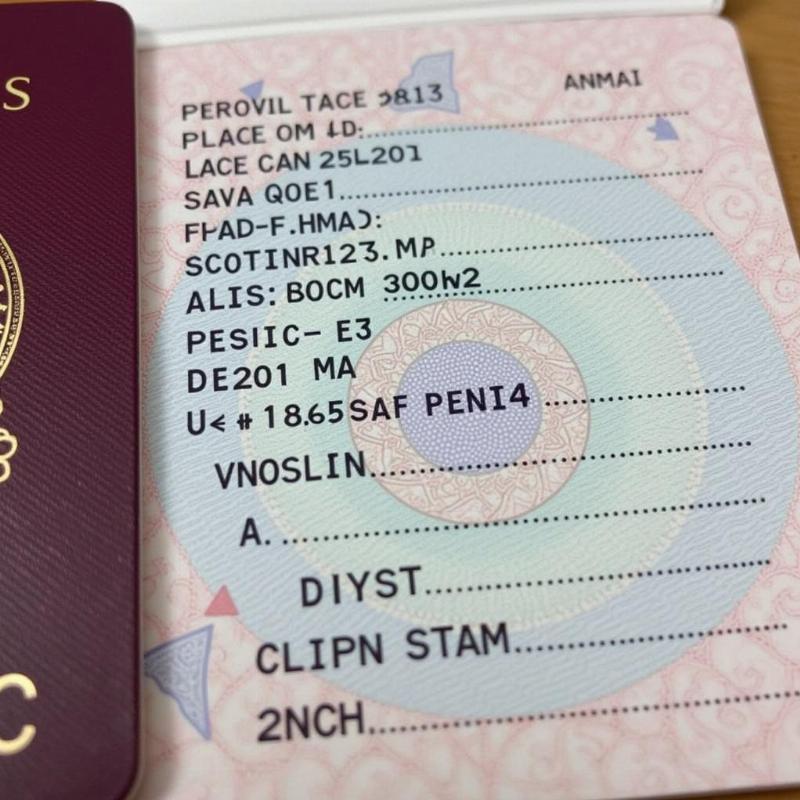“Place of Birth ka matlab” translates to “meaning of place of birth” in English. This seemingly simple phrase holds significant importance, affecting everything from legal identity to cultural connection. Whether you’re filling out official documents, tracing your ancestry, or simply curious about the significance of your birthplace, understanding its meaning is crucial. This article will delve into the various facets of “place of birth,” exploring its legal, genealogical, and personal implications.
The Legal Implications of Place of Birth
Your place of birth is a fundamental identifier. It’s often the first piece of information recorded on official documents, establishing your existence within a specific legal jurisdiction. This has implications for citizenship, residency rights, and access to certain services. For instance, in many countries, birth within its borders automatically confers citizenship. Understanding the legal ramifications of your place of birth is essential for navigating legal processes and ensuring your rights are protected.
Place of Birth on Official Documents
From birth certificates and passports to visa applications and other government forms, your place of birth is a mandatory field. Accuracy is paramount, as even minor discrepancies can lead to complications. Imagine applying for a visa with an incorrect birthplace listed – it could lead to delays or even rejection. Therefore, it’s vital to double-check the information you provide and ensure it aligns with official records.
 Place of Birth on Passport
Place of Birth on Passport
Genealogical Significance of Place of Birth
Beyond legal matters, your place of birth holds immense genealogical value. It’s the starting point for tracing your family history, connecting you to your ancestors and their stories. Knowing your birthplace allows you to explore historical records, migration patterns, and even local traditions that shaped your family’s identity. It can unlock a deeper understanding of your heritage and provide a sense of belonging.
Tracing Your Roots Through Your Birthplace
Imagine discovering your great-grandparents immigrated from a small village in Italy to India. Knowing their place of birth allows you to research that village, learning about its history, culture, and the circumstances that led your ancestors to leave. This journey of discovery can be deeply rewarding, enriching your understanding of your family’s story and your own identity.
The Personal Meaning of Place of Birth
While legal and genealogical aspects are crucial, the personal significance of one’s birthplace shouldn’t be overlooked. It’s often intertwined with a sense of identity, belonging, and nostalgia. The sights, sounds, and smells of your birthplace can evoke powerful memories and emotions, shaping your worldview and influencing your life choices.
The Emotional Connection to Your Birthplace
For many, their birthplace represents home, regardless of where they currently reside. It’s a place filled with childhood memories, family gatherings, and formative experiences. Returning to your birthplace can be a deeply emotional experience, rekindling connections to your past and reinforcing your sense of self.
Conclusion
“Place of birth ka matlab” goes far beyond its literal translation. It represents a key component of our legal identity, a gateway to our ancestral past, and a source of profound personal meaning. Understanding its significance empowers us to navigate legal processes, explore our heritage, and appreciate the unique influence our birthplace has on our lives.
FAQ
- What if I don’t know my exact place of birth? Consult family members or official records. If necessary, seek legal advice.
- Can I change my listed place of birth on official documents? This process varies by jurisdiction. Consult the relevant authorities for guidance.
- How can I use my place of birth to trace my ancestry? Start by researching online genealogy resources and historical archives.
- Does my place of birth affect my cultural identity? While not solely determinative, it can contribute to your sense of belonging and cultural understanding.
- What should I do if there’s a discrepancy between my birth certificate and passport regarding my place of birth? Contact the issuing authorities immediately to rectify the error.
- Can I visit my birthplace if I’m no longer a citizen of that country? Visa requirements will depend on your current citizenship and the country of your birth.
- Is it important to preserve information about my place of birth for future generations? Absolutely. It’s a valuable piece of family history.
PlaTovi, your trusted travel partner, specializes in creating unforgettable travel experiences, from traditional package tours to bespoke itineraries. Whether you’re exploring your own country or venturing abroad, we can help you plan your perfect journey. Explore our range of services including traditional package tours (sightseeing + dining + shopping), hotel & resort bookings, international & domestic flight bookings, event & wedding planning, car rentals & airport transfers, and visa & documentation assistance. Contact us today to start planning your next adventure! Email: [email protected], Phone: +91 22-2517-3581. Let PlaTovi help you discover the world.